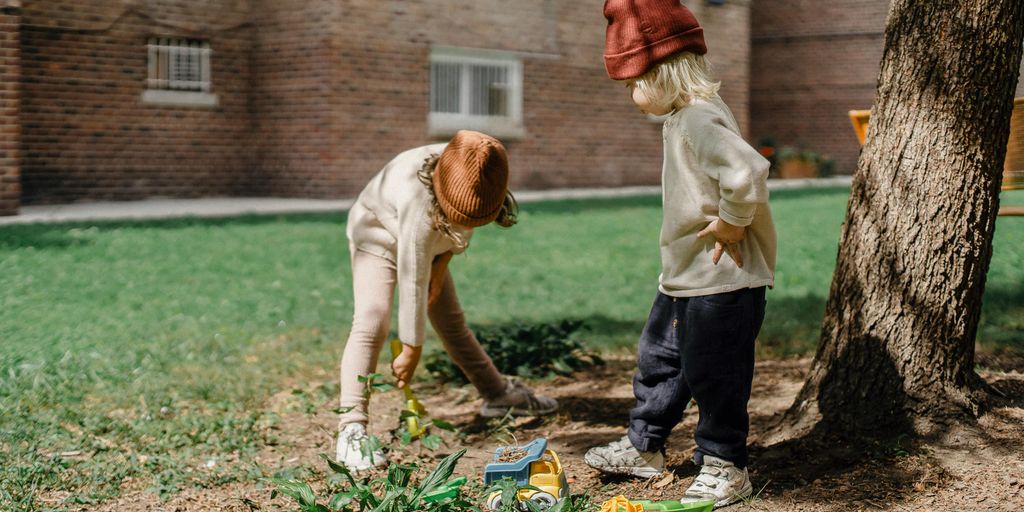
Play is not just a way for kids to have fun; it’s a crucial part of growing up. The National Association for the Education of Young Children (NAEYC) calls play a key part of proper child development. The United Nations even says it’s a basic right for every child. When kids play, they learn important skills that help them become happy and healthy adults. This article looks at why play is so important for children.
Key Takeaways
- Play helps kids solve problems and think creatively.
- Playing improves children’s physical fitness and motor skills.
- Through play, children learn how to cooperate and communicate with others.
- Play is crucial for emotional growth, helping kids handle stress and build confidence.
- Unstructured play encourages kids to be independent and creative.
The Role of Play in Cognitive Development
Enhancing Problem-Solving Skills
Play is a powerful tool for boosting problem-solving skills in children. When kids engage in play, they often face challenges that require them to think critically and come up with solutions. This process helps them develop the ability to tackle problems effectively in real-life situations. Play is an exceptional vehicle for cognitive growth, offering a fertile ground where young minds can flourish.
Boosting Creativity and Imagination
Through play, children can use their creativity to develop their imagination. They create and explore worlds they can master, which helps them conquer their fears while practicing adult roles. This imaginative play is crucial for cognitive development as it allows children to think outside the box and come up with innovative ideas.
Improving Memory and Concentration
Engaging in play can also improve memory and concentration in children. Games that require following rules or remembering sequences can enhance a child’s ability to focus and retain information. This not only helps in academic settings but also in everyday life, making play an essential part of cognitive development.
Play is not just a fun activity; it is a critical component of healthy brain development. It allows children to engage and interact with the world around them, building the skills they need for future success.
Physical Benefits of Play for Children
Developing Motor Skills
Play is crucial for children to gain control over their bodies. Activities like running, jumping, and climbing help develop both fine and gross motor skills. These movements are essential for everyday tasks and overall physical development.
Promoting Physical Fitness
Engaging in active play helps children stay fit and healthy. It combats issues like childhood obesity by keeping kids moving and burning energy. Regular physical activity through play also strengthens muscles and bones, contributing to a healthier lifestyle.
Encouraging Healthy Growth
Play supports healthy growth by allowing children to explore their physical capabilities. It helps in the development of coordination and balance, which are vital as they grow. Additionally, playtime offers a fun way to practice and improve these skills, making it an enjoyable part of their daily routine.
Play is the medium through which children gain control over their bodies. It contributes to their social, emotional, physical, and cognitive development in a holistic and mutually supportive way.
Social Skills and Play: Building Relationships
Through play, children learn to work together, share, and take turns. These activities teach them how to cooperate and understand the importance of teamwork. Playing with others helps them build their language skills and learn how to relate well to others. They also learn to resolve conflicts and experiment with different roles in various social situations.
When children engage in social play, they practice verbal and non-verbal communication. They learn to express their thoughts and understand others’ perspectives. This type of play helps them develop vital social and emotional skills, such as empathy and active listening. Interacting with peers during playtime is crucial for their overall communication development.
Play allows children to understand and follow social norms. They learn what behaviors are acceptable and what are not. By playing games like tag or hide-and-seek, they understand rules and the consequences of breaking them. This understanding helps them navigate social relationships and build strong bonds with others.
Social play is essential for children as it helps them learn how to communicate, cooperate, and resolve conflicts. It also allows them to experiment with different roles and see how they fit into various social situations.
Emotional Growth Through Play
Building Resilience and Coping Skills
Play allows children to explore their feelings and emotions. Through play, they can act out different scenarios, experiment with new behaviors, and work through difficult emotions. This can be especially helpful for children struggling with emotional difficulties or who have experienced a traumatic event.
Enhancing Emotional Regulation
Physical fun such as free play during recess helps develop children’s motor skills, prevent childhood obesity and build emotional intelligence. The gentle thrill of a playground slide, for example, lets a child build confidence as they take risks in a relatively safe environment. Games such as duck-duck-goose and tag also help children build other socio-emotional skills such as empathy as children learn to be careful not to hurt others by tapping someone too hard, for example.
Fostering Self-Esteem and Confidence
With this definition in mind, it’s easy to recognize play’s potential benefits. Play nurtures relationships with oneself and others. It relieves stress and increases happiness. It builds feelings of empathy, creativity, and collaboration. It supports the growth of sturdiness and grit. When children are deprived of opportunities for play, their development can be significantly impaired.
The Impact of Play on Brain Development
Stimulating Neural Connections
Play is crucial for brain development as it helps in forming and strengthening neural connections. When children engage in playful activities, their brains release chemicals that promote growth and maintenance of brain cells. This process is essential for cognitive development and overall brain health.
Supporting Executive Function
Engaging in play also supports the development of executive functions, which include skills like planning, decision-making, and self-control. Through play, children learn to follow rules, make decisions, and solve problems, all of which are important for their future success.
Enhancing Sensory Integration
Play activities often involve multiple senses, helping children to integrate sensory information more effectively. This is important for tasks such as reading and writing, as well as for overall cognitive development. Playful activities stimulate the release of dopamine, a chemical that enhances mood and cognitive function.
Play is not just a fun activity; it is a vital part of brain development that helps children grow into competent and resilient adults.
The Importance of Unstructured Play

Encouraging Independence
Unstructured play is essential for fostering independence in children. When kids engage in activities without a set goal, they learn to make decisions on their own. This type of play allows them to explore their interests and develop problem-solving skills. Unstructured play doesn’t just benefit social-emotional development; it plays a vital role in cognitive development as well.
Fostering Creativity
During unstructured play, children have the freedom to use their imagination and creativity. They can invent games, create stories, and explore new ideas without any limitations. This kind of play encourages them to think outside the box and come up with unique solutions to problems. Imaginative games like building cubbyhouses with boxes or playing make-believe are perfect examples of how unstructured play fosters creativity.
Allowing for Spontaneous Learning
Unstructured play provides opportunities for spontaneous learning. Children can discover new things about the world around them and learn at their own pace. This type of play helps them develop a love for learning and encourages curiosity. It also allows them to practice new skills they are learning, such as negotiation and cooperation.
Unstructured play is a time for children to pursue their own interests and activities, which helps them use their imaginations and creativity. It also allows them to practice new skills they are learning, such as negotiation and cooperation.
Parental Involvement in Play
Strengthening Parent-Child Bonds
When parents actively participate in their children’s play, it strengthens the bond between them. This shared time allows parents to understand their children’s interests and personalities better. Parents’ participation influences children’s positive behavior, increases cognitive achievement, and affects emotional growth in young learners.
Modeling Positive Behaviors
Parents have the unique opportunity to model positive behaviors during play. By demonstrating kindness, patience, and cooperation, children learn these essential social skills. This modeling helps children understand how to interact with others in a positive way.
Creating a Safe Play Environment
Ensuring a safe play environment is crucial for children’s development. Parents can create spaces where children feel secure to explore and express themselves. This safe environment encourages children to take risks and try new things, which is vital for their growth.
Play is not merely a break from learning; it is an essential component of it. Children, with their natural curiosity, learn best when they are engaged in play.
Encouraging Independence
While parental involvement is important, it’s also essential to allow children some independence during play. This balance helps children develop self-confidence and problem-solving skills. Parents can be present as passive observers, giving children the freedom to lead their playtime.
Fostering Creativity
Parents can foster creativity by providing diverse play materials and encouraging imaginative play. This not only boosts creativity but also helps children develop cognitive and emotional skills. By supporting their children’s creative endeavors, parents contribute to their overall development.
Allowing for Spontaneous Learning
Unstructured play allows children to learn spontaneously. Parents should encourage this type of play, as it promotes independence and creativity. By stepping back and letting children take the lead, parents enable them to explore and learn at their own pace.
Conclusion
Play is not just a way for kids to pass the time; it’s a crucial part of growing up. It helps children learn about themselves and the world around them. Through play, kids develop important skills like problem-solving, teamwork, and creativity. They also build physical strength and emotional resilience. By making time for play, parents and caregivers can support their children’s overall development and well-being. So, let’s encourage play every day and give children the chance to thrive.
Frequently Asked Questions
Why is play important for children?
Play is crucial for kids because it helps them learn and grow in many ways. It supports their cognitive, physical, social, and emotional development.
What are the cognitive benefits of play?
Through play, kids can enhance their problem-solving skills, boost creativity, and improve memory and concentration.
How does play contribute to physical development?
Play helps children develop motor skills, stay physically fit, and grow healthily.
Can play improve social skills?
Yes, play teaches kids how to cooperate, communicate, and understand social norms, helping them build relationships.
What emotional benefits do children get from play?
Play helps children build resilience, regulate their emotions, and boost their self-esteem and confidence.
Why is unstructured play important?
Unstructured play encourages kids to be independent, fosters creativity, and allows for spontaneous learning.






